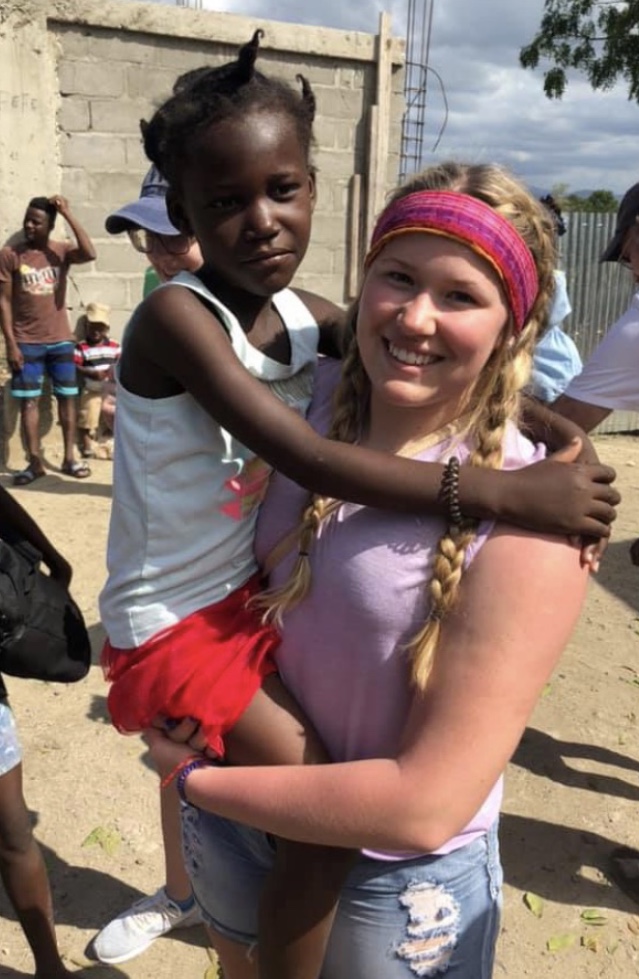
As I stepped off the plane, I could immediately feel the dryness in the air. Haiti had not experienced a decent rain in seven months before our travel there in April 2019. The airport was tiny, but we got our bags loaded onto the church bus and headed to Fort Liberte. The smell of burning trash was throughout all of Cap Haitien and did not fade until we exited the city. There were no traffic laws, so the largest vehicle on the road was given the right-of-way. This was my first time in Haiti, but many in my group had been several times, so the closer we got to the church, the more excitement that filled the bus of the reuniting of old friends.
The church was the best part of Fort Liberte. We lived as royalty compared to the living conditions of many residents. Most houses were more like shacks with dirt or cement floors, cement walls, no electric, no water, and, of course, barely any food. Women were not likely to be seen out as much as men, and most young girls were in school or at home. It was painfully evident that we were in a third world country, and things like waste management were not a viable option. There were big things that I noticed we take for granted, but the little things are what matter. We do not realize how truly blessed we are to have vaccinations, dental care, health care, clean water, and even electricity.
On most days we had a choice to stay at the church and bag beans with rice for distribution in a different city that evening or head out to an outpost clinic in a random village. I tried my best to split my time evenly and help in both directions, but the outpost clinic was where I enjoyed spending my time, typically managing our limited pharmacy. Communicating with people who didn’t speak the same language was hard, even with interpreters, but the blending of cultures was beautiful as these villages accepted our help, even if that help was only a thirty-day supply of medicine that could be as simple as vitamins or ibuprofen. The sad reality was that these people waited all year for our team of doctors and nurses to come back for a simple check up in a makeshift clinic set up in a church. Hospitals were not common in Haiti because most had no form of transportation and no way to pay if they did happen to find their way there. I learned that dental procedures consisted of pulling rotten teeth for around 40 dollars. Yes, that was about it.
We spent most of our downtime watching the boys play basketball and walking the streets. My favorite part was letting the little boys on the street play with my phone and watching their faces light up as they were exposed to something brand new. I will never forget the connection I had with some of the boys playing games like “patty cake” and “concentration” as we sat on the sidewalks.
As sad as this trip may seem, it was easily the greatest traveling experience I have ever had and the greatest overall learning experience. I pray that I get the opportunity to return next year and see my friends I had to leave behind. The bonds that were created are unbreakable and the memories will last forever. Haiti may not be on many peoples’ bucket list, but this trip was an experience I wouldn’t trade for anything.
Dear Reader: This page may contain affiliate links which may earn a commission if you click through and make a purchase. Our independent journalism is not influenced by any advertiser or commercial initiative unless it is clearly marked as sponsored content. As travel products change, please be sure to reconfirm all details and stay up to date with current events to ensure a safe and successful trip.